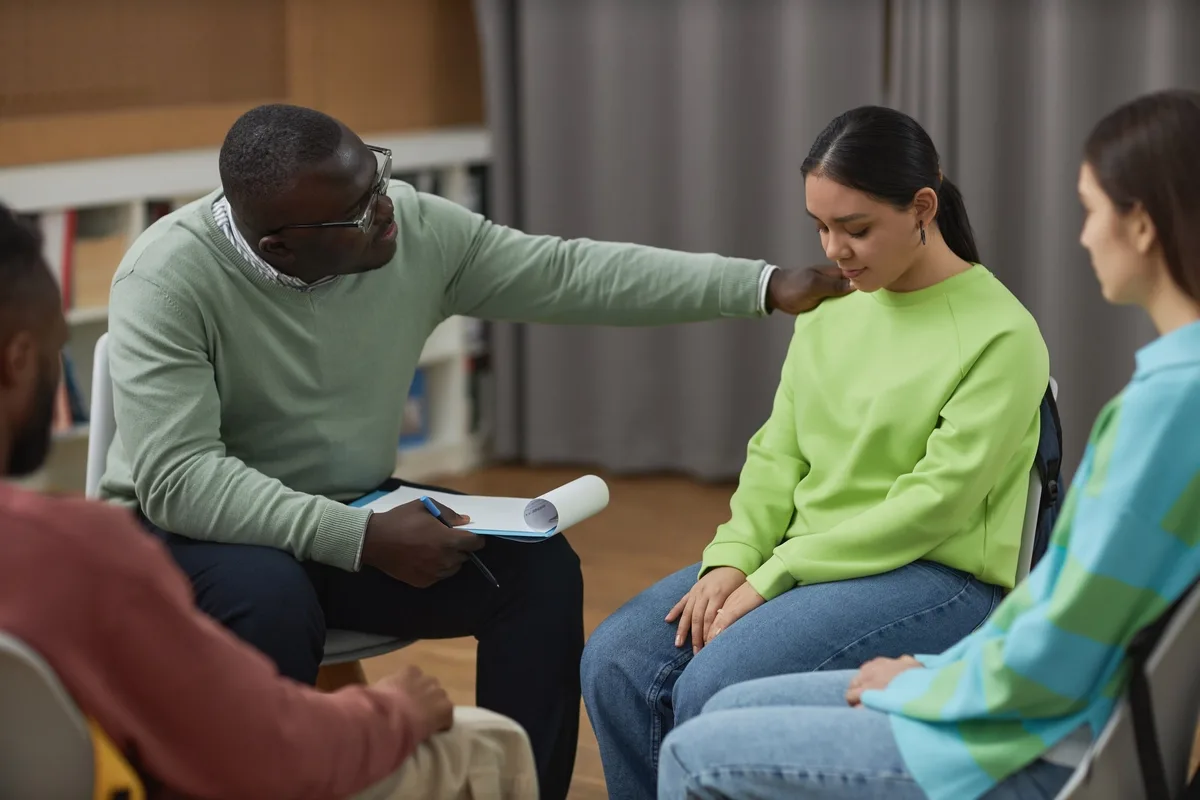24/7 Helpline:
(866) 899-221924/7 Helpline:
(866) 899-2219
Learn more about PTSD Treatment centers in Selma
PTSD Treatment in Other Cities

Other Insurance Options

Amerigroup

Humana

Optima

BHS | Behavioral Health Systems

WellCare Health Plans

Aetna

UnitedHealth Group

CareFirst

AllWell

Evernorth

Meritain

Sliding scale payment assistance

Medical Mutual of Ohio

Health Choice

Choice Care Network

Horizon Healthcare Service

BlueCross

Magellan

Sutter

Regence










